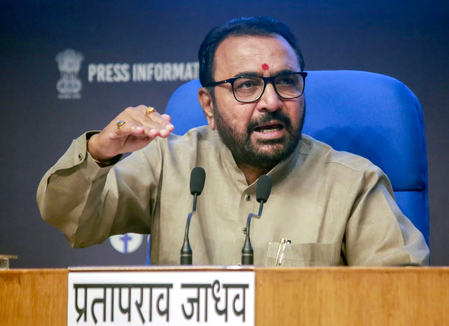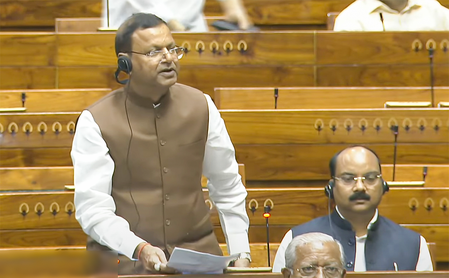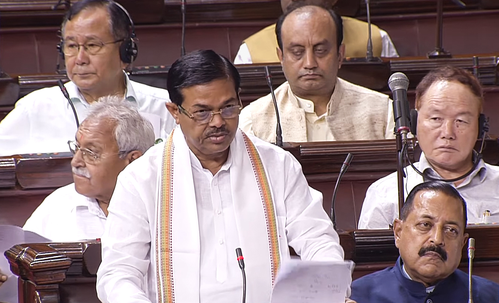
New Delhi, March 11 (IANS) India is well-prepared to face any future pandemic, said experts on the fourth anniversary of the Covid-19 pandemic, on Monday. Covid was declared a global pandemic by the World Health Organization (WHO) on March 11, 2020.
The pandemic claimed over 7 million lives globally, and more than half a million lives were lost in India.
While the WHO has officially declared the pandemic to be over in May 2023, the SARS-CoV-2 virus, causing the Covid infection, continues to mutate and infect large numbers of people worldwide.
However, the risk posed has decreased significantly. With scientists globally indicating the potential risk of future pandemic outbreaks, governments have seen the need for pandemic preparedness, which can enable all countries to equally access tests, and vaccines, among others.
This has also been put forward by the WHO and global health experts, especially as the pandemic saw the rich countries hoard vaccines, while many poor countries, in the Global South, were left to fend for themselves.
While the former had a surplus of tests and vaccines, which also had to be trashed due to expiry dates, the latter suffered immense loss of lives, including of healthcare workers.
The situation was similar for India, but it quickly ramped up efforts to help its citizens as well as poor countries in need.
Today, the country stands much more prepared than it was when Covid stuck first, said the experts.
“India appears to be well-placed at this time from the perspective of the pandemic. The country acted assertively in the initial part of the pandemic and followed it up with a systematic and risk-stratified rollout of vaccines which greatly reduced the number of deaths from the pandemic,” Dr Rajeev Jayadevan, co-chairman of the National Indian Medical Association Covid Task Force, told IANS.
“The health system has been ramped up to face similar outbreaks in the future, including speedy communication systems, chain of command, custom facilities and effective implementation of non-pharma interventions based on a continuing risk assessment,” he added. Infectious disease expert Dr Ishwar Gilada told IANS that the country had the Disaster Management Act, 2005; and Epidemic Diseases Act, 1897 in place, but not pandemic preparedness.
He said the G20 presidency helped India towards thinking in that direction.
The country’s NITI Aayog and Health Ministry is reportedly working to develop a pandemic preparedness programme, broadly covering areas such as surveillance, risk assessment and mobilisation of resources to help the country effectively combat any future pandemic. “Although India initially faced major fall-outs in providing healthcare for other conditions, paediatric vaccination, economy and societal disruption, and education to name a few,” the country soon pulled through, Dr. Gilada said.
“Covid vaccine R&D was fastest ever, vaccines came in record time though with the emergency use authorisation (EUA) tag and that helped India to stand out globally as a very powerful country. India also excelled in the vaccination drive to surpass 2 billion doses. India’s Vaccine-Maitri initiative helped lower and middle-income countries (LMIC) at their toughest time when rich countries were self-centred.
“Today, India is much better prepared than ever before to face any future pandemic and other health exigencies — in terms of PPE kits, testing capabilities, hospitalisation, oxygen production, medicines, vaccines and also human resource,” said the doctor, who is Consultant in Infectious Diseases at Unison Medicare and Research Centre, Mumbai.
Further, Dr. Jayadevan also stressed the importance of understanding Long Covid — a miscellaneous set of health conditions that linger three months or longer following infection, occurring after 5 to 10 per cent of initial symptomatic infections.
“We need to be vigilant about which way the virus turns, whether all new versions will arrive in the future, particularly as a result of reverse spill over from animals. This can also occur from people with immunosuppression, who harbour the virus for over long periods, enabling it to accumulate an extraordinarily large number of mutations,” he said.
–IANS
rvt/pgh




